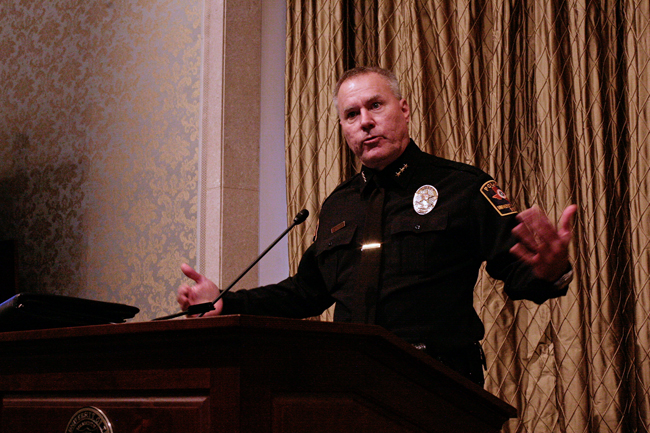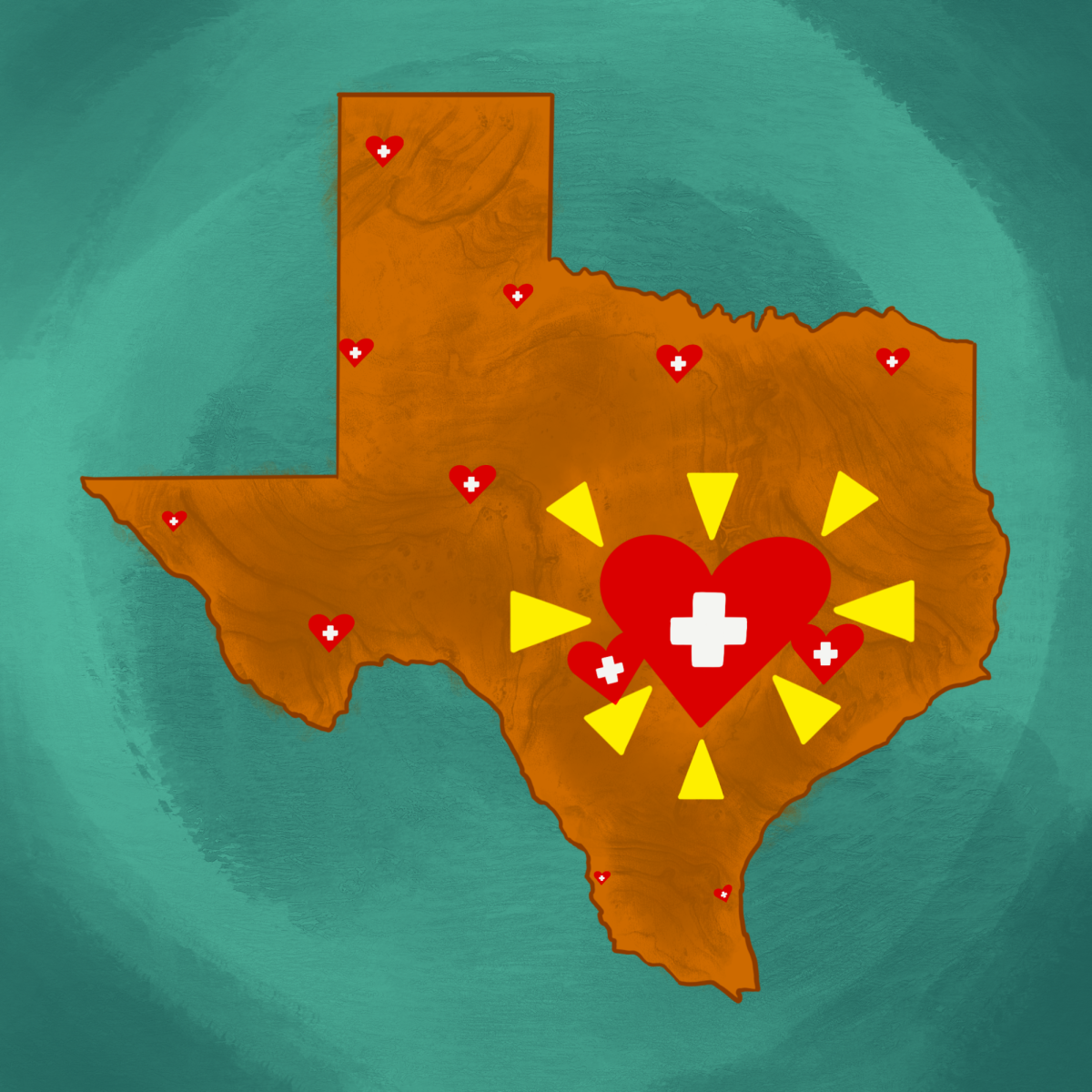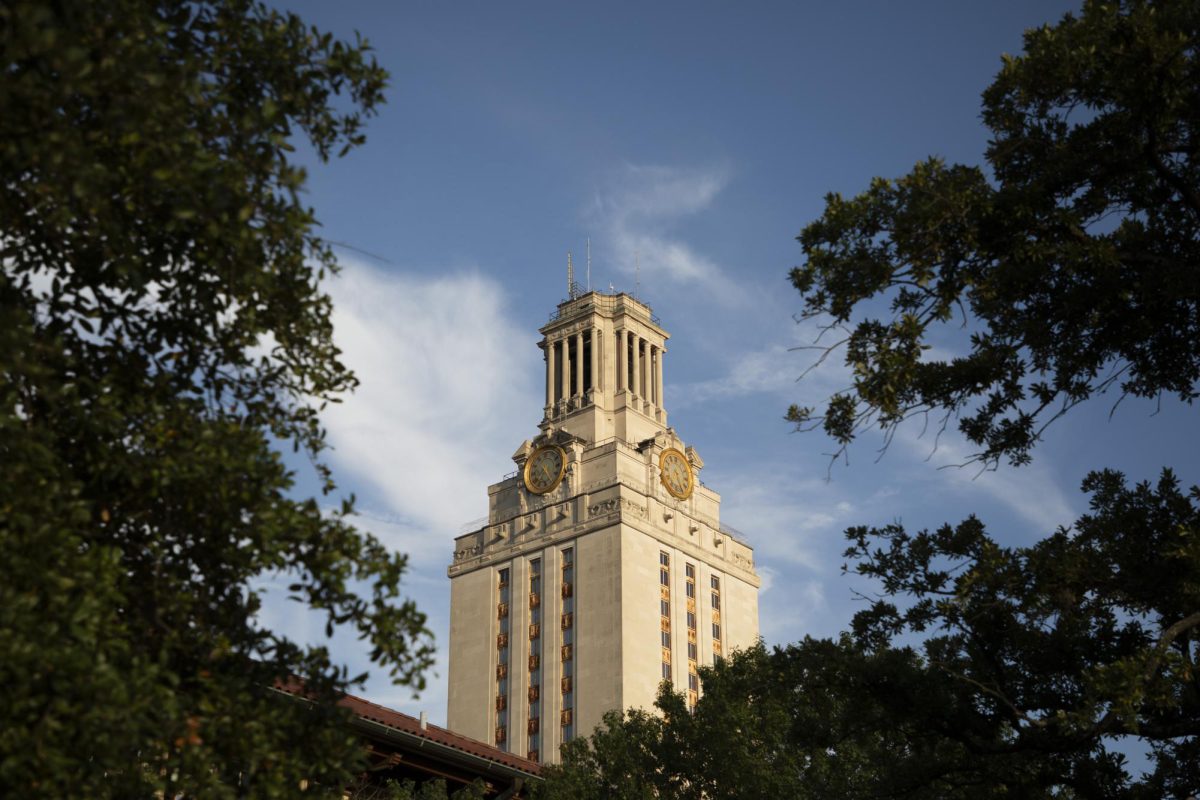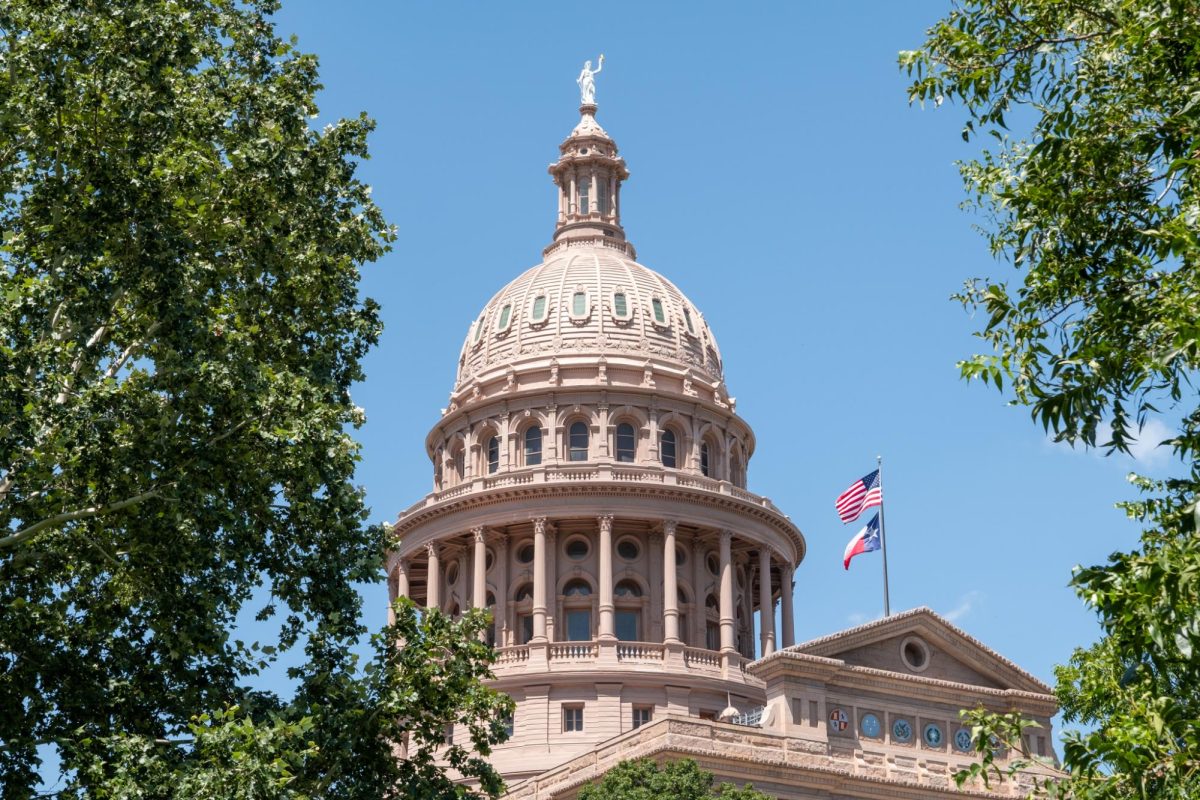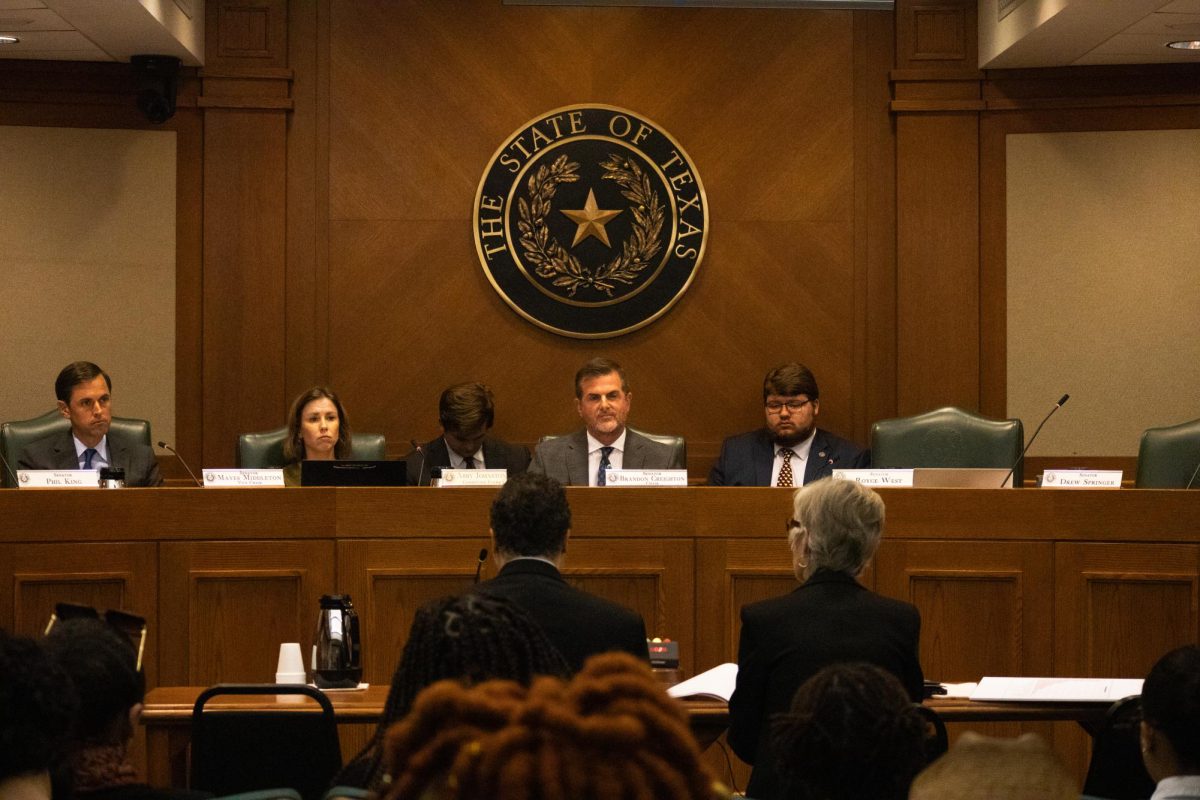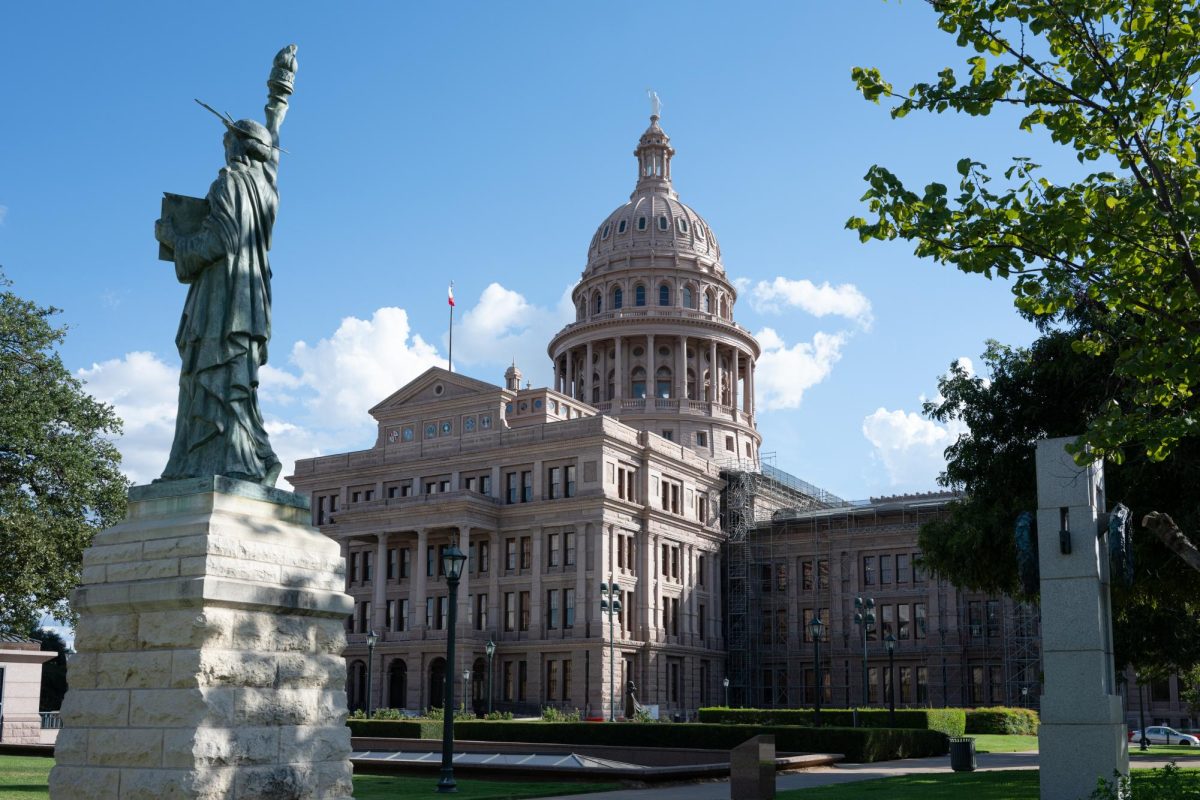The UT Faculty Council passed a resolution Monday reaffirming the ban of firearms on campus.
The Council unanimously approved the resolution in response to SB 11, which would allow concealed carry of firearms on campus and within campus buildings.
“The Faculty Council at The University of Texas at Austin reaffirms its belief that carrying firearms, including concealed weapons, on the University campus by anyone other than law enforcement officers is detrimental to the safety of the students, faculty, and staff,” the resolution said. “We endorse Chancellor McRaven’s position on this matter.”
William Beckner, Faculty Council chair and math professor, said administrators at other universities have also spoken out against firearms on campus.
“We and many other campuses in Texas have passed, since 2009, similar statements,” Beckner said. “I think it was very important that Chancellor McRaven articulated a good argument for why this is not good for our campus.”
President Powers said, at this time, it is not possible to know what safety preparations would be necessary should the bill pass in the Texas legislature.
“The safety on the campus in all kinds of ways is something that we spend a lot of time on,” Powers said. “We don’t know exactly what form this legislation could take or whether it will pass, but I can assure you we will take very seriously preparing for whatever the way of the land is to make the campus as safe as possible.”
UTPD chief David Carter said, following adjustments to the law, the police will change how students, staff and faculty are protected.
“In my 31 years as a police officer, I’ve seen many changes in the laws over the years, and we simply have to address and adjust to whatever those are,” Carter said. “I want to assure you that we’re monitoring and will look if there is some sort of a change when laws pass. Then the police department will adjust as it must do so.”
Carter said campus attacks, despite heavy media coverage, are rare. He said students, faculty and staff, however, must always be aware of their surroundings.
“When you look at it, statistically speaking, the odds are very remote that an incident will occur at any one place,” Carter said. “Of course, at the same time here in Austin, we’ve experienced instances just like that.”
Electrical engineering senior Jessica Nguyen, who works as an undergraduate teaching assistant, said she received brief training on how to react in the event of an active shooter on campus and other emergency situations, but said she would like more instruction if the bill passes.
“I think if there was a practice session that would have been better than giving us a video,” Nguyen said. “[It is] like giving CPR. You don’t really know how to do it correctly unless you are trained hands on.”

